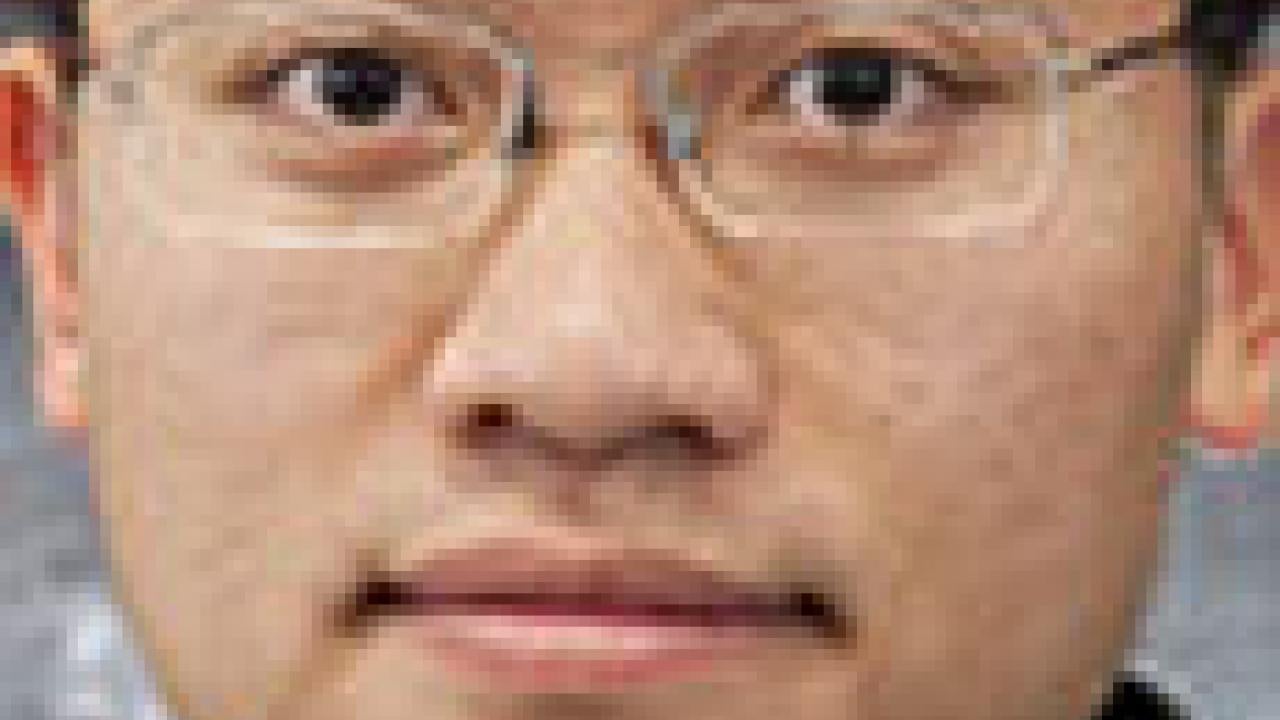BLOOD AND MARROW DRIVE
The campus Blood and Marrow Drive will be on the Quad next week: Look for the bloodmobiles on the east and west sides, from 9:30 a.m. to 5 p.m. Tuesday and Wednesday, April 22 and 23.
The Community Resource Service Center is sponsoring this drive, with the student-run Clinica Tepati as co-sponsor.
If you wish, you can donate in memory of Cesar Chavez (by specifying Clinica Tepati’s Code 3974). You can also donate on behalf of Delta Epsilon Mu (Code L259), a professional, co-ed pre-health fraternity at UC Davis.
Each participant will receive a free T-shirt and MyBloodSource reward points.
Before donating, drink plenty of fluids and eat. And remember to bring photo ID.
For more information or to volunteer, contact Felicia Roper by phone, (916) 531-9442, or email.
Chao Wei Yu, who earned a B.S., M.S. and Ph.D. at UC Davis and who now does research here as a post-doctoral scholar, has acute myeloid leukemia — and a search is on for a donor whose stem cells could be used for transplant into Yu’s bone marrow.
Yu
Hopefully, a lifesaving tissue match will result from a Picnic Day collection conducted by the Alameda-based Asian American Donor Program. Maybe you were one of the 70 people who gave a tissue sample that day — by way of a quick swab of the inside of your cheek — for entry into the national Be a Match registry.
Didn’t do it, but you’d like to? No problem: You’ll have more opportunities next week and the week after:
• Tuesday-Wednesday, April 22-23 — During the regularly scheduled UC Davis Blood and Marrow Drive. The Sacramento-based BloodSource collects blood for use in 25 counties in Northern and Central California, and tissue samples (more than 100,000 so far) for Be a Match. Look for the bloodmobiles on both sides of the Quad, from 9:30 a.m. to 5 p.m. both days.
• Tuesday-Wednesday, April 29-30 — The Asian American Donor Program returns to campus for this collection (in two locations). All donors welcome, but the program ackowledges that the best match for Yu is likely to be another person of Asian descent (Yu is Taiwanese). Look for the AADP tables from 10 a.m. to 3 p.m. outside the Coffee House (Memorial Union) and the Silo.
Yu, 33, was born and raised in Taiwan and moved to the United States when he was 18. He received his bachelor’s degree at UC Davis in 2005, master’s in 2009 and doctorate in 2012, all in biological systems engineering.
He works in biomass renewable energy (he did his master’s and Ph.D. studies with Professor Bryan Jenkins, and now works in Professor Jean VanderGheynst’s lab).
Married and the father of a 2-year-old son, Yu was diagnosed with acute myeloid leukemia just before his son’s first Christmas, in 2012. He went through several cycles of chemotherapy and received a stem cell transplant from his mother (50 percent match) last December. Now he has relapsed and is back in Stanford Hospital.
Unfortunately, Yu’s only sibling, a sister, is not a match. His search is made more difficult because of a shortage of ethnic donors. As a result, non-Caucasians are more likely to die of leukemia or of other blood cancers
While the Asian American Donor Program has a special interest in ethnic donors, it encourages everyone to join the registry. Perhaps you can help someone now or someone else down the road, said Carol Gillespie, the donor program’s executive director.
The Asian American Donor Program works to educate community members about the shortage of ethnic marrow donors and the importance of joining the registry.
The goal is to have matching marrow donors available when needed. Otherwise, while waiting, a patient’s body becomes weak and may reject a transplant, once a marrow match is found.
Be the Match
BloodSource and the Asian American Donor Program and collect tissue samples — gathered by a swab of the inside of the cheek — from people who are 18 to 44 years old, meet the medical guidelines listed here and make a good faith commitment to donating to any person in need if matched.
Check the BloodSource “Locations” Web page to find blood and marrow drives near your home. You can also check the Asian American Donor Program’s calendar, or ask AADP to send you a home collection kit.
The National Marrow Donor Program runs the Be a Match registry.
Follow Dateline UC Davis on Twitter.
Media Resources
Dave Jones, Dateline, 530-752-6556, dljones@ucdavis.edu
